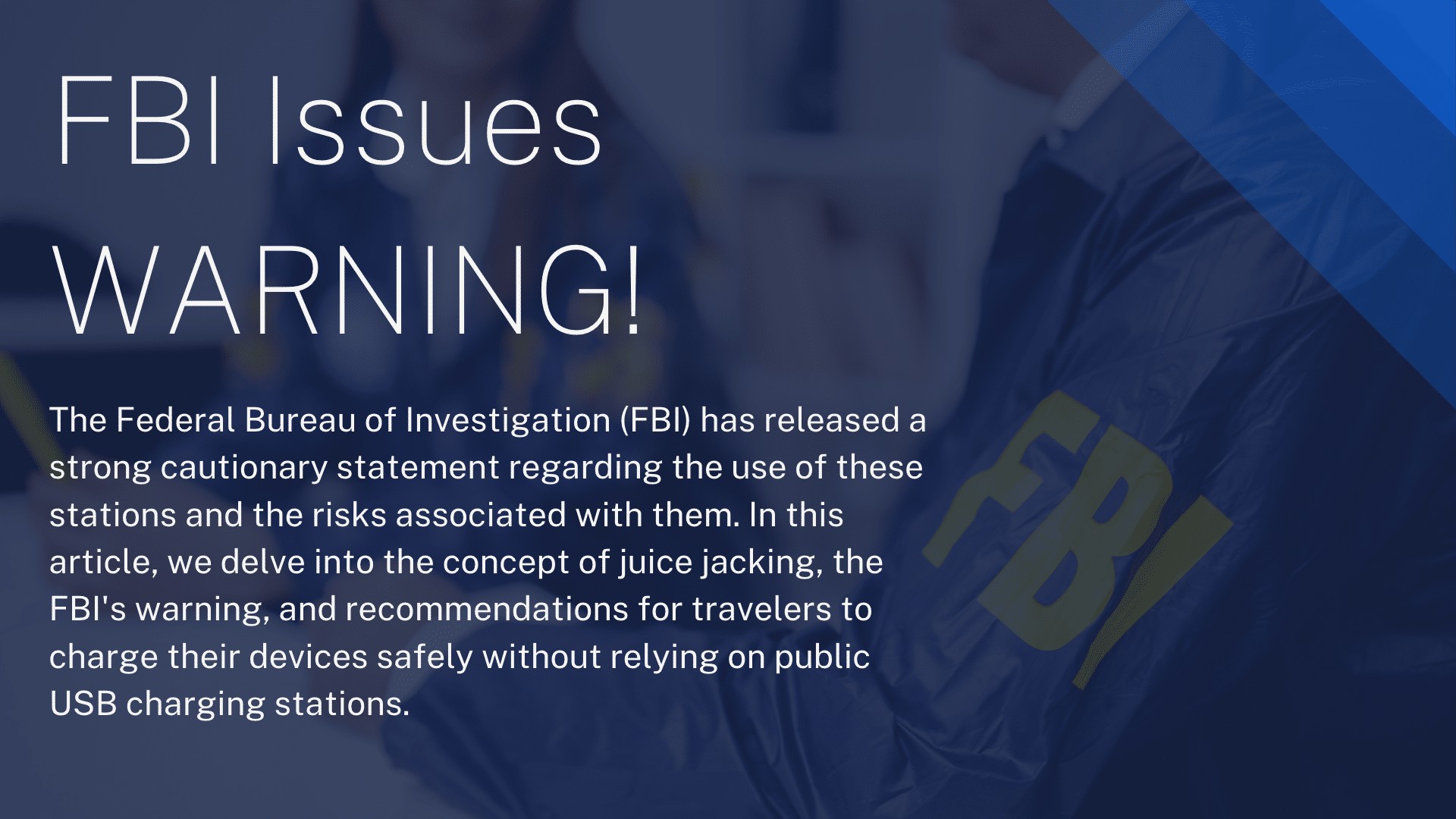-
Connect With Your Ottawa IT Service Company at (613) 828-1384
Connect With Your Ottawa IT Service Company at (613) 828-1384
As technology advances, so do the threats that accompany it. One such danger is “juice jacking,” a cyberattack that targets public USB charging stations, potentially infecting devices with malware. The Federal Bureau of Investigation (FBI) has released a strong cautionary statement regarding the use of these stations and associated risks.
This article delves into juice jacking, the FBI’s warning, and recommendations for travelers to charge their devices safely without relying on public USB charging stations.

Juice jacking is a cyberattack that exploits the convenience of public USB charging stations to compromise devices with malware or steal sensitive information. When an unsuspecting user connects their device to a compromised charging station, they inadvertently grant hackers access to their device. Once connected, the attacker can inject malware to steal personal information, monitor user activity, or remotely control the device.
The FBI has issued a stern warning against using public USB charging stations, emphasizing the risks they pose to device security. Hackers are increasingly using these charging stations to compromise devices, making it essential for users to be cautious and consider alternative charging methods.
To help travelers charge their devices securely without using public USB charging stations, consider the following recommendations:
As technology continues to evolve, staying informed about potential threats is crucial. Juice jacking is a growing concern for device security, and the FBI’s warning reminds us of the importance of vigilance. Following the recommendations, travelers can securely charge their devices and minimize the risks associated with public USB charging stations.